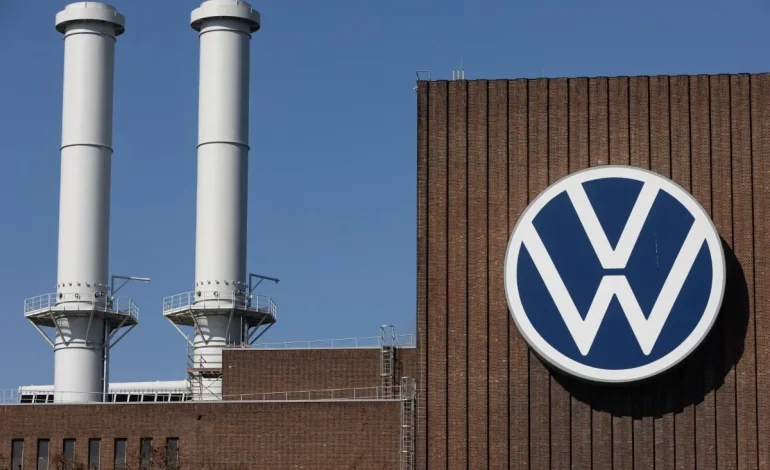Volkswagen’s management is preparing for a tense confrontation with its workforce on Wednesday as the company unveils plans for significant cost-cutting measures, including potential factory closures in Germany, Reuters reports.
These measures are part of Volkswagen’s strategy to achieve a more ambitious profit margin for its namesake brand.
At the meeting in Wolfsburg, where Volkswagen’s largest plant is located, Chief Financial Officer Arno Antlitz and VW brand chief Thomas Schaefer are expected to present the company’s proposals. The gathering, likely to last several hours, will be marked by heightened emotions and strong resistance from workers. Daniela Cavallo, head of Volkswagen’s works council, has already expressed her fierce opposition to the proposed cuts, warning that the meeting will be “very uncomfortable” for management.
Volkswagen announced on Monday that it is considering unprecedented steps, such as closing factories in Germany and potentially ending a long-standing job guarantee at six of its plants. These measures are part of a broader effort to deepen a €10 billion ($11.04 billion) cost-cutting drive, with the goal of increasing the brand’s profit margin to 6.5% by 2026, up from 2.3% in the first half of this year.
The proposed cuts have sparked concern among labor representatives, who argue that Volkswagen’s current production strategy is inefficient and that the company has been too slow in investing in mass-market electric vehicles. The powerful IG Metall union, which has representation on Volkswagen’s supervisory board, has expressed its unwillingness to enter wage negotiations scheduled for October unless the threat of plant closures is removed from the table.
Thomas Knabel, a representative for IG Metall at Volkswagen’s Zwickau plant, emphasized the need for clear “rules of the game” before any discussions can begin. He also indicated that the union seeks a broader discussion on the carmaker’s future strategy and options.
While Volkswagen’s management attributes the company’s financial difficulties to the worsening economic climate in Germany and increased competition in the automotive market, labor representatives point to internal inefficiencies as a significant factor. Despite the differing perspectives, there is a consensus among investors and analysts that Volkswagen must act swiftly to reduce costs, a daunting challenge given the company’s size and complexity.
“In difficult times, management and unions have an ability to get to consensus,” noted Jefferies analyst Philippe Houchois.
He, however, acknowledged that reaching an agreement in this situation “is not going to be smooth.”









